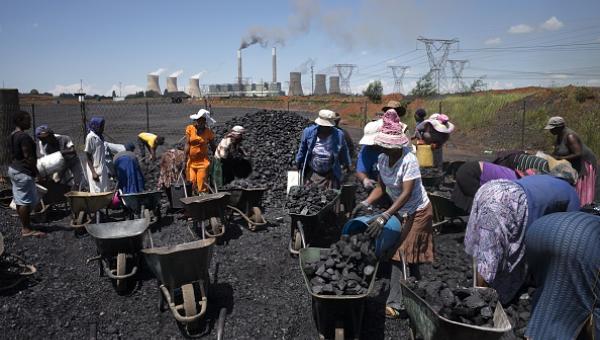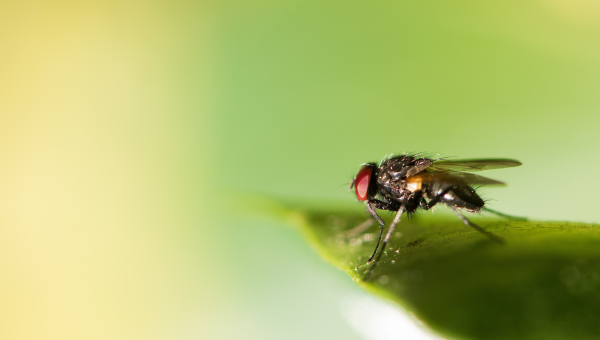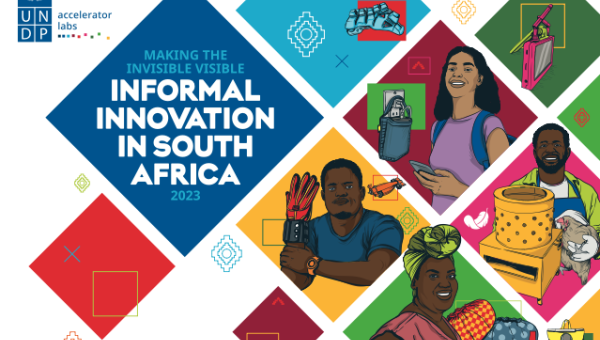UNDP South Africa Accelerator Lab
Focusing on the intersections of food-energy-water and youth employment

The Accelerator Lab South Africa (AccLab SA) formed part of the first cohort of Accelerator Labs that started operation in 2019, and was officially launched in January 2020 by the Minister of Science and Innovation. The lab team members, all new to the UNDP and with backgrounds in the private, academic and government sectors, bring a unique perspective, new energy and enthusiasm to UNDP South Africa.
Following research and engagements with several stakeholders, AccLab South Africa selected a frontier challenge of the Food-Energy-Water (FEW) Nexus, given South Africa’s challenges in all three sectors. This approach avoids operating in silos, and serves as a means to embed UNDP’s strategy of SDG Integration and the AccLab’s approach of Systems thinking and Solution Portfolios.
To better understand the National System of Innovation in South Africa, AccLab SA undertook a grassroot innovation ecosystem analyses, which helped identify the many institutions working in the space, and served as a tool to engage further. Since then AccLab SA partnered with Water Research Commission to experiment on local water innovations, and piloted sustainable food gardens with the Institute of Natural Resources in 2020. In 2021 AccLab SA signed an MOU with the Department of Science and Innovation, and has since partnered on the AgTech Innovation Challenge which aims to support the development of innovations within the agricultural sector. Additionally in 2021, the AccLab ran a year-long project addressing food waste and job creation. This project involved multisectoral partnerships with six key organisations in this thematic area, and was implemented from the national level all the way down to community level. The project supported R&D, training, capacity development, and behaviour change, as well as supporting 10 established entrepreneurs and 9 grassroots innovators to scale and replicate their enterprises.
AccLab South Africa also shifted gear to respond to the COVID 19 pandemic. At the start of the pandemic, the AccLab issued a Call to Creatives and received over 70 artworks created by youth in various media that assisted in disseminating key messages related to COVID 19 prevention. To bridge the digital divide and ensure more people have access to online services, such as education, health and business, AccLab SA supported the roll-out of CSIR’s new low-cost internet technology to rural communities across South Africa. In 2020, the new technology was rolled out to 4000 people and in 2021 this is being scaled to reach an additional 10 000 people. AccLab SA also ran a COVID 19 Makerthon with the Tshimologong Digital Innovation Precinct which supported youth/small businesses to develop innovations that could aid recovery from and respond to COVID 19. In order to respond to growing food insecurity and to identify vulnerable households, AccLab SA trained unemployed youth as data collectors, and by using a task-based app, delivered e-vouchers to over 6800 households.
Additionally, AccLab SA has implemented various youth and entrepreneurship development programmes ranging from digital skilling to business development. For example, using a collective intelligence methodology, the AccLab is running a Youth Barometre to collect data and insights from over 10 000 youth nationally on issues related to climate change and a just transition. The Lab has also partnered with Google and their Next Billion Users (NBU) initiative - a programme designed to create socio-economic opportunities for the next 1 billion internet users – to run a pilot programme in several disadvantaged secondary schools to reduce as many of the barriers as possible and ensure the best possibility for impactful integration of E-Learning. The partnership has since provided internet connectivity to 20 schools and access to Google’s G-Suite for Education to 14,334 students. In addition 805 teachers within these schools have been trained by an authorised Google Education Partner to ensure that these tools are applied correctly.
The UNDP South Africa Accelerator Lab was selected as a participant in the Japan SDGs Innovation Challenge. Through the Innovation Challenge, seven UNDP Accelerator Labs are collaborating with Japanese companies to co-develop and design models to test potential solutions to address specific development challenges problems identified by the Labs.
Our learnings
Our partners
We are seeking partners who, like us, seek to accelerate the development of solutions within the Food-Energy-Water Nexus, while simultaneously promoting youth development and employment.











 Locations
Locations




